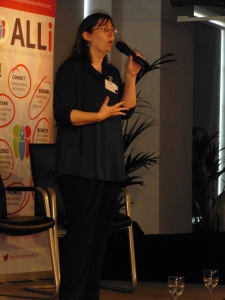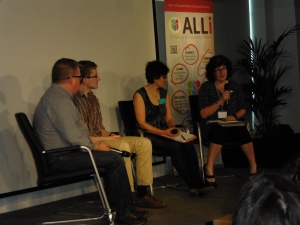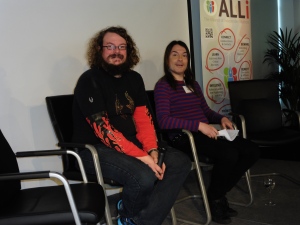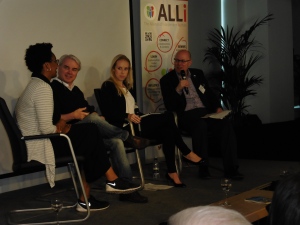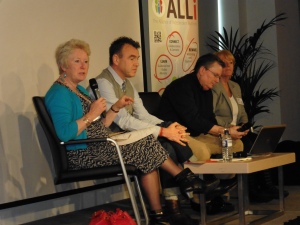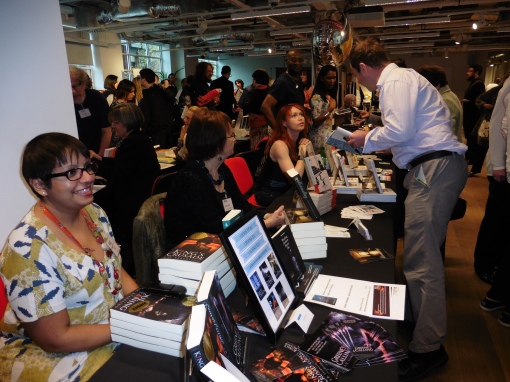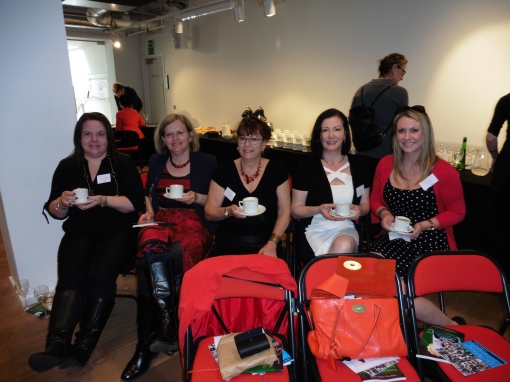Frankincense by Linda Spurr
75CE Sumhuram on the
southern coast of Arabia
I can smell the frankincense. When I close my eyes I can see
my trees in the Qara hills, the trees that I claimed, nurtured and harvested.
My right hand moves to my waist, seeking my knife, the manqaf, that I would use
to score the bark so that the trees bleed their precious sap, that hardens into
beads of frankincense. But I have no knife now and I doubt I shall have need of
one in the future.
I am guilty and I have confessed.
The frankincense reminds me of good times. Its sweet, woody,
spicy aroma takes me back to my childhood, to those untroubled days when I was
permitted to be in the groves. But when I became a woman, it was no longer my
right to go there. But I did. I took no heed of our laws, our mores, our
history. I had a skill with the beads, a special talent for turning them into
balms, incense, fragrances that no-one had created before. That, so I thought,
gave me, Nashwa Al-Jamal, permission to do as I wanted.
But the gods found me guilty. They have punished me and now
it is the turn of our king and the people.
I can smell death. Frankincense is at the heart of our lives: its smoke takes prayers to our gods, its
perfume obscures the odours of the day, it is burned in the temples, before
battles, on wedding nights. But it is also the smell of death for it is used at
funerals, to embalm the body and as a final offering to the deceased.
Is this frankincense for me? My
funeral gift? To send me to the gods?
I am startled into opening my
eyes as I hear voices, the guards who brought me here, to the dungeons of the
Mukkarib’s palace. I hear them approaching, they move quickly, they have a
purpose. But their footsteps pass by my door and fade.
Not all. One guard has stopped
and I hear the rattle of keys. As the door to my cell opens, I can feel the
pulse of blood in my ears, loud, fast, like the ritual drumming at a feast ….
or a funeral.
Critique by Ayisha Malik
There are many interesting aspects of this opening page, including a sense of Tension and a strong first person narrative. The author manages to use evocative images, smells and sounds to create an engaging atmosphere. There are some features the author could consider enhancing and in this critique I’ll highlight areas that are working, as well as those that could be developed.
For any narrative Conflict is a key technique to help engage the reader. This usually arises as a result of interaction between characters. In this opening the narrator is on her own and so the conflict must arise from within (emotional arc), while the author can use the narrator’s external situation (Setting) to ramp up the tension. The first person narrator is generally used to good effect here, although there is perhaps a little more Telling as a result of this. For example, we are told:
The frankincense reminds me of good times
But this is Shown though the memory it conjures so we don’t actually need this opener. (Incidentally, is there a way to juxtapose this line with what the frankincense means to Nashwa now, to create a sense of cruel irony?) The telling isn’t a huge issue at the moment and it helps to give us some background information about who the narrator is and why she’s here – however, it’s a good habit to pick things like this out in order to tighten the writing.
Currently, despite it being a first person narrative, we are kept at arm’s length when it comes to Nashwa’s emotional state. We aren’t initially aware of her situation, but when we finally learn that she’s in a dungeon, potentially awaiting her own death, she seems to be very calm. Her demeanour is almost resigned and nostalgic and so we do need a stronger sense of her internal struggle.
For example, the author evokes smell and sight in the opening sentences, but is taking us out of the present to do so, which also slows the Pace. Nashwa may very well be reconciled to her fate, but if that’s the case then we would need a keener sense of how she came to feel this way. It is especially important since this fate is probably death and so the stakes are high. If she doesn’t care about her potential death, why should we? The line towards the end...
I can feel the pulse of blood in my ears, loud, fast, like the ritual drumming at a feast
... is a good example of using her emotional reaction to demonstrate her fear, including use of the senses in a way that shows her anxiety rather than telling us.
I touched upon pace above and this is related to Structure, which I feel could be used to better effect. Technical aspects such as structure, pace, tension etc. are often intertwined – improvement to one, usually affects the other. I found some really emotive lines in the opening: ‘I can smell death’, ‘I am guilty and I have confessed’, ‘… or a funeral’. These short, staccato sentences give a sense of abruptness that could, thematically, be linked to the possible death of the narrator. However, I’m not convinced that these have been used to their utmost effect. Consider the opening paragraph:
I can smell the frankincense. When I close my eyes I can see my trees in the Qara hills… But I have no knife now and I doubt I shall have need of one in the future.
We’re not given any sense of present setting here and nor is this flashback conducive to heightening tension or conflict. In essence it slows the pace. Alternatively you have:
I can smell death. Frankincense is at the heart of our lives: its smoke takes prayers to our gods, its perfume obscures the odours of the day, it is burned in the temples, before battles, on wedding nights. But it is also the smell of death for it is used at funerals, to embalm the body and as a final offering to the deceased.
Is this frankincense for me? My funeral gift? To send me to the gods?
The first is a hard-hitting line and I wonder whether opening with something like this would do a better job of engaging the reader? Right now the frankincense will mean very little to the reader, but this line takes us to the core issue at hand. The pace is then slowed by explaining the frankincense’s function in ‘their’ (who are they?) daily lives. The author should think of where the tension and conflict is on a line-by-line as well as paragraph-by-paragraph level, taking into account the reaction they want to evoke in the reader. The final line relates this smell of death directly to the narrator, heightening the tension by telling the reader what’s at stake.
A better sense of the current setting from the get-go would also be helpful. Where are we? The narrator says: I am startled into opening my eyes as I hear voices…
A stronger sense of place should help to make this environment more menacing, also increasing tension. We find out later she’s in a dungeon and ideally it would be good to know this earlier – if not explicitly then certainly small details that denote her dire situation could be seeded in, contrasting her current situation to the memories the smell of frankincense invokes. Remember, it’s not necessary to give all details at once, but by drip-feeding information the author should be able to maintain tension, spurring the reader to continue.
On a more minor note, try to avoid the passive voice: ‘My right hand moves’, and any repetition that can make a sentence read awkwardly – there are two consecutive sentences beginning with ‘But’. I also found the repeated use of the word ‘frankincense’ quite distracting. I did find myself wondering how the gods have punished her? We don’t need an overt explanation, but a few details to give a sense of her trials and sufferings might be useful.
In conclusion, this is a very promising piece – intriguing and atmospheric – which could be developed by re-structuring the narrative for a stronger sense of setting, along with a better understanding of the narrator’s emotional state. I hope the author finds this helpful and continues to work on the project in order to fulfill its considerable potential.














